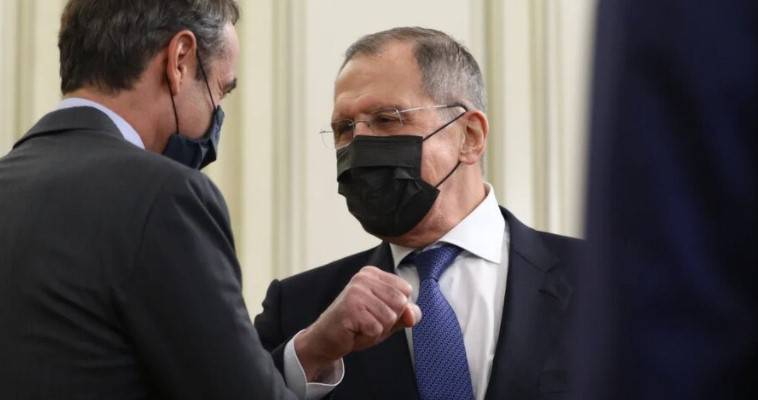Alexandros Tarkas: Diplomatic retaliation from Moscow to Greece – What is hidden behind the protocol
04/02/2021
Moscow is showing a tough face to Athens, with differentiation of tactics in the Eastern Mediterranean and in matters of immediate Greek interest, as (and) publicly revealed by the cold refusal of President Vladimir Putin to participate in the celebrations for the bicentennial anniversary of March 25, 1821.
The surprise, mainly of the PM’s office and secondarily of the Foreign Ministry, was absolute after the announcement of the rejection of the invitation by the Kremlin spokesman Dmitry Peskov, last Friday. The truth, of course, is that a firm commitment to Vladimir Putin’s presence was never made.
Moscow simply moved gradually from the original wording, about studying the program of the Russian president, to the warmer phraseology for his desire to attend in the Greek capital. Diplomatically, the – real or misleading – expression of desire does not equate to a promise, but it seems that it was evaluated, unfoundedly, as such by the staff of Prime Minister Kyriakos Mitsotakis. Much as SYRIZA had expected in 2015, to receive billions in advance from a future Russian pipeline.
At the same time, at the level of intra-government accusations of responsibility, the Minister of National Defense, Nikos Panagiotopoulos, was wrongly accused of sparking Peskov’s reaction. Contrary to rumors, he did not surprise Moscow through an interview and reference to invitations to Vladimir Putin, French President Emmanuel Macron, and British Prince Charles. Others were responsible.
The real problem
The mishandling, in terms of symbolism and protocol, began in September last year, when the invitation was sent by Kyriakos Mitsotakis, instead of – correctly – by the President of the Republic to her Russian counterpart. Deputy Foreign Minister Miltiadis Varvitsiotis followed, emphasizing to Russian officials the importance of Kyriakos Mitsotakis’ personal interest. It is said that Miltiadis Varvitsiotis did not receive an answer and that even Foreign Minister Sergei Lavrov did not promise anything to the Prime Minister during their talks in Athens at the end of October.
However, the real Greek-Russian problem is certainly not in the protocol, but in the developments focusing on Turkey. Initially, the government celebrated Lavrov’s statement that “under the Law of the Sea, each Contracting State has the right to determine the range of territorial waters within 12 miles.”
But in the quarter that has passed since then, the degraded second part of Lavrov’s statement that the exercise of the right must be done “by taking into account the provisions of common sense and geographical peculiarities” proved to be just as important. In short, the Russian foreign minister hinted that the Aegean might be a special case, as Turkey has provocatively claimed since the 1970s.
Unfortunately for Greek interests, despite the different priorities of Ankara and Moscow on a number of other issues, Russian cynical diplomacy does not jeopardize its cooperation with Turkish President Recep Tayyip Erdogan, who is constantly shaking NATO to its advantage.
Russian complaints
The omens for a new approach of Moscow to the Cyprus issue are also worrying. Although there is no danger of a radical change in the traditional (in favor of Nicosia) stance in the UN Security Council, in recent months Moscow has not shown the same enthusiasm for supporting Cypriot demands. The coldness is a counterweight to the upgrade of the US-Cyprus defense cooperation and to the US request for control over companies and banking transactions of Russian interests in Cyprus.
Russia has a similar stance towards the expansion of Greece-US defense cooperation, which is, of course, self-evident among NATO members. Undersecretary of State Alexander Grusko, who visited Athens a week ago, said that “the possibility of our country’s friend’s territory being dragged into Russia’s geopolitical game of containment must be ruled out.”
Alexander Grusko criticizes the consultations for the signing of a new Mutual Defense Cooperation Agreement (MDCA) with the granting of multiple facilities to the US armed forces on Greek territory. The Russian Deputy Foreign Minister’s public criticism confirms Sergei Lavrov’s expression of dissatisfaction with the Prime Minister for the talks on defense issues with the then US Secretary of State Mike Pompeo last September.
It is also noted that Moscow is dissatisfied with the Greek refusal to comment on Lavrov’s proposal for cooperation on vaccines against Covid-19. The coming weeks will show the final development, as Berlin (with which the Mitsotakis government is often aligned) no longer rules out EU cooperation with Moscow in the production of the Russian vaccine.





